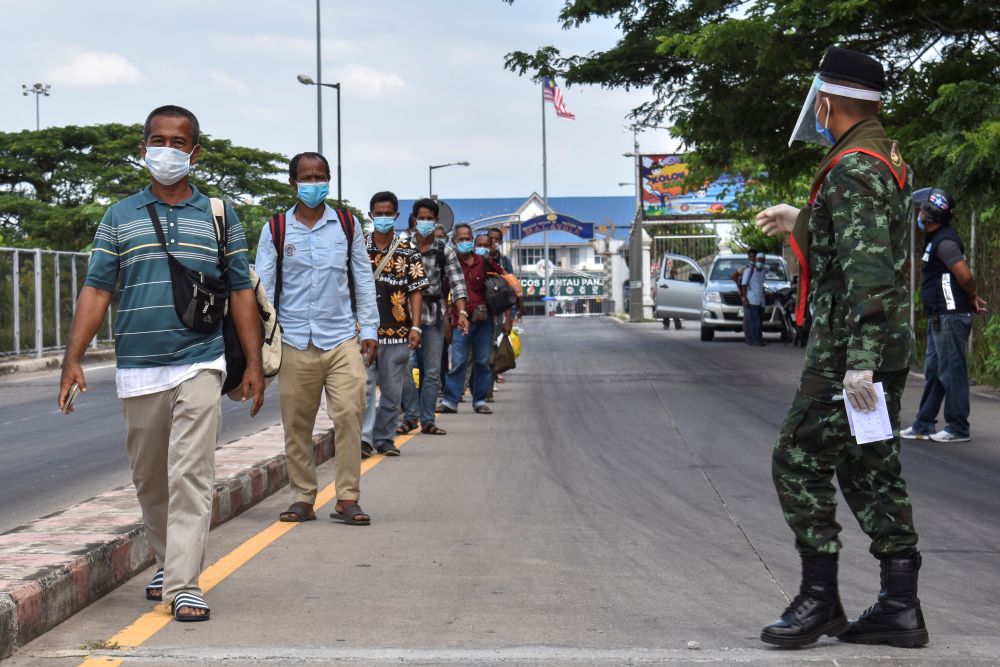KUALA LUMPUR, April 21 — Around 800 Thai citizens who were working in Malaysia are now stuck at the Rantau Panjang checkpoint in Kelantan and unable to cross the border to their home country as they do not have the funds to pay for a health certificate that verifies them as fit to travel, a report has said.
Citing one of the workers who declined to be named, Thai newspaper Bangkok Post said that these Thai workers cannot cross to Sungai Golok in Thailand without the fit-to-travel health certificate as some have less than 100 baht (over RM13) on them.
The paper said the workers need help, and that they are also unable to work in Malaysia which is currently under a movement control order (MCO) to get the needed funds.
"They want to come home very badly, and are willing to go into quarantine," the man was quoted as saying.
According to Bangkok Post, Thai workers returning to Thailand require both a fit-to-travel health certificate, as well as a letter from the Thai embassy or consulate specifying the border checkpoint for them to return by.
The paper added that the Thai government has said that Thai citizens stranded in neighbouring nations can return home from April 18 (Saturday) through 23 checkpoints in 21 border provinces, with each checkpoint having a daily capacity of a maximum of 100 returnees.
On Sunday, Thailand’s Centre for Covid-19 Situation Administration (CCSA) spokesman Thaweesilp Wissanuyothin said a total of 2,548 Thais stranded in Malaysia have so far registered to return to Thailand.
He was also reported as saying that the Thai embassy in Kuala Lumpur and consulate offices in Malaysia have provided assistance such as care packages, food and essential items to 10,396 Thai citizens in Malaysia.
According to national news agency Bernama, Thai citizens who were working in Malaysia had started returning home after the April 18 reopening of borders which had been closed between the two countries since March 23.
A six-week MCO has been imposed in Malaysia since March 18 and is due to end on April 28, with the order requiring the temporary shutdown of non-essential businesses to curb the spread of Covid-19.



















